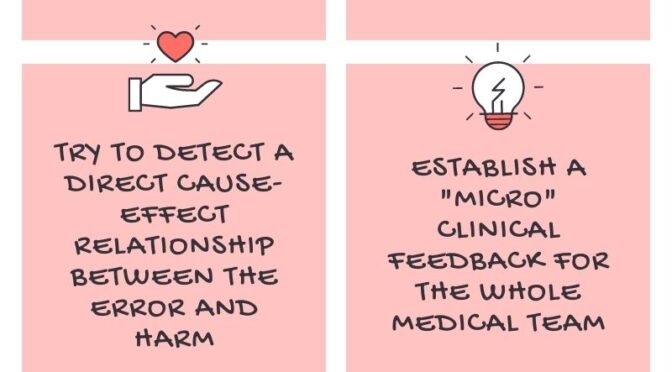The difficult world of improving medical errors. Sorry, I, m also human
Author: Lorenzo Alonso
FORO OSLER
The clinical landscape
Our brain looks for material or intellectual things that can give us a sense of pleasure, satisfaction, well-being and joy. When the perspective ahead is a bad or dangerous situation, an evasive behaviour is almost a universal human response.When we train as medical doctors our feeling and objectives are devoted to learning as much as possible about diseases, physiopathology, classifications, clinical cases, but we are not ready to admit a wrong diagnosis or a bad outcome. When you are still a young doctor, your first idea is that you have to study hard to be an excellent professional, and this is a real truth, but many factors influencing the everyday life of a medical practitioner that I found difficult to select an example to compare. Look at the airplane industry, or the railways, definitely they are complex activities with a high risk of accidents, but at the same time with a complete set of protocols and safety measures. Think now in a busy General Practitioner consultation, or in a doctor attending several patients in a ward, with multiple channels of information, a scarcity of alerts, distractions, important decisions, grief, even death around you. Do you think is this an easy task? Do you think that this environment can be fixed just with more study or mental concentration?
Medical errors, accidents happen
Then, what happens when you have a slip or an error without a direct harm to your patient? Would you always speak about that?
Doctors around the world are facing a complicated situation now, but there had been always a risky situation in his or her daily clinical work. Medical literature about medical error is full of information about the subject of the “second victim” and also about how to disclose an error. However, we know almost nothing about the real percentage of disclosure in real practice. When an error is not followed by harm to the patient, the possibility of a disclosure is clearly reduced.
Different institutions have their own policy about the disclosure of medical error, some of them establishing a protocol derived from their Patient Safety organization. Others, like in the United Kingdom, there is a general “recommendation” based in a general behaviour for every public worker, the Duty of Candour , promoting an honest and truthful declaration of the error, but considering the error more like a systemic than an individual problem. In some countries, like Sweden, give a direct compensation to the patient if there had been some appreciation of medical error by the patient.
I believe, that only under specific circumstances, the disclosure of medical error will be a reality, and I would like to show in the next picture some important aspects involved in a policy of medical error disclosure:

Conclusion
- The magnitude of medical errors is unclear.
- Physicians are reluctant to communicate an error, mainly if there is not a harm to the patient
- Medical errors have to be seen as a way to improve inside a medical service
- Medical schools must incorporate this field into the curriculum
Bibliography
- Kalra J, Kalra N, Baniak N. Medical error, disclosure and patient safety: A global view of quality care. Clinical Biochemistry 2013; 46: 1161-1169
- Bascuñán ML, Arriagada AM. Comunicación de errores médicos a pacientes y familiares: interrogantes y herramientas. Rev Med Chile 2016; 144: 1185-1190 (Spanish)
- Stroud L, Wong BM, Hollenberg E, Levinson W. Teaching Medical Error Disclosure to Physicians-in-Training: A Scoping Review. Acad Med 2013; 88: 884-892




